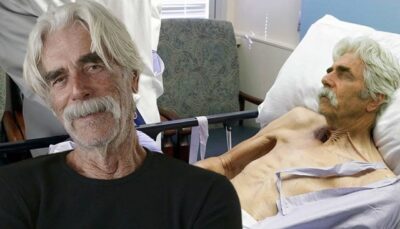Lebron James, Steph Curry, Kevin Durant, the list of all-time greats playing in the NBA right now could go on for a long time. Sport betting trends currently have Durant’s Phoenix Suns among the favorites to win the NBA Championship this season. The best players are consistently-consistent whether they’re shooting in the paint, from deep or catching boards.
But differing skill sets aside, they all have one particular thing that aids their performance: a strict diet. With the athletic demands of NBA players increasing generation after generation, it is integral that the modern-day NBA player keeps to a diet that keeps them fit, energized and aids recovery.
Basketball is a sport which requires explosive energy to keep up with the fast pace of the game. However, as well as needing short explosive bursts they are also required to be constantly moving, with the average player running between 2-3 miles every game. Because of this basketball is essentially both anaerobic (high intensity) and aerobic (cardio, longer periods) exercise. This means that players’ diet must fuel different energy systems.
Champion Athletes Sports Nutrition:
Champion Athletes Sports Nutrition, one of the most successful sports nutrition programs in the US, recommends that the average NBA player consumes 4,500 calories per day. Around 55-65% of their caloric intake will come from carbohydrates, which is what fuels our muscles. The remaining calories should be drawn almost equally between healthy fats and proteins.
Protein will help repair and build muscle whilst fats perform similarly to carbs but are higher in calories. Here, we will breakdown the diets of some of the most successful players in the NBA and why they benefit them so well as well as looking at the foods they want to stay away from.
LeBron James:
In an appearance on The Tim Ferriss Show in 2018, ‘The King’ revealed his typical gameday diet.
- Breakfast: egg white omelet, smoked salmon, gluten-free pancakes with berries
- Lunch: whole wheat pasta, salmon, vegetables
- Pre-game: peanut butter and jelly sandwich
- Halftime: apple slices with almond butter
- Post-game: protein shake (plant-based protein powder, almond milk, fruit)
- Dinner: chicken parmesan, arugula salad, “beautiful glass” of cabernet
This is a very protein rich diet with plenty of carbohydrates too. Salmon, chicken and eggs are all great sources of protein. This will help LeBron, a perennial starter of course, recover after games. Pancakes, bread, pasta and vegetables are all great sources of carbs as well, helping the all-time NBA leading scorer remain energized throughout his time on the court.
In an interview with Menshealth.com in 2021, he explained his diet saying: “The carbs I kinda ramp up. Because you’re losing so many calories, you’re burning so many calories, burning all your energy throughout those games. So I kinda go heavy on the carbs because it gives you energy. It’s worked for me.”
Kevin Durant:
KD’s towering presence on the court makes him one of the toughest players to defend in the league, however it can come with a price. Taller players are generally more susceptible to injuries because they’re putting a lot of weight on their lower body. This can lead to their joints and tibias becoming inflamed.
As such, KD has adopted a diet to combat that. He eats plenty of fish and seafood which is rich in Omega-3, which the Arthritis Foundation has found may help joint swelling and pain. It is also rich in protein and healthy fats so it covers plenty of bases for the two-time NBA champ. He also keeps his diet low carb up to gameday, when he will up his intake for peak energy levels.
Giannis Antetokounmpo:
The Greek Freak has six small meals spaced throughout the day which is said to be better for digestion and for the absorption of nutrients. He sticks to high protein foods such as chicken and steak as well as fresh fruit, eggs and oatmeal. He is on a higher carb diet to maintain his 6’11, 240lb frame.
His faster metabolism means he is able to eat things like pasta, sandwiches and even pizza more often than the average player. Who would have thought that being a giant could come with these unlikely perks?
Foods to stay away from:
A wise man once said ‘not all macros are created equally’. For example, high carb diets may sound easy but there are good carbs and ‘bad’ carbs for athletes. Sugary sodas and candy bars for example have been stripped of their nutritional value, thus becoming ‘empty calories’, meaning they do little to nothing in enhancing performance.
Fats are the same in that there are the good and the bad. Trans fats and saturated fats found in fast food and potato chips can lead to you feeling sluggish and increase inflammation. This is why athletes get their fats from healthier foods such as nuts, pulses and fish.










